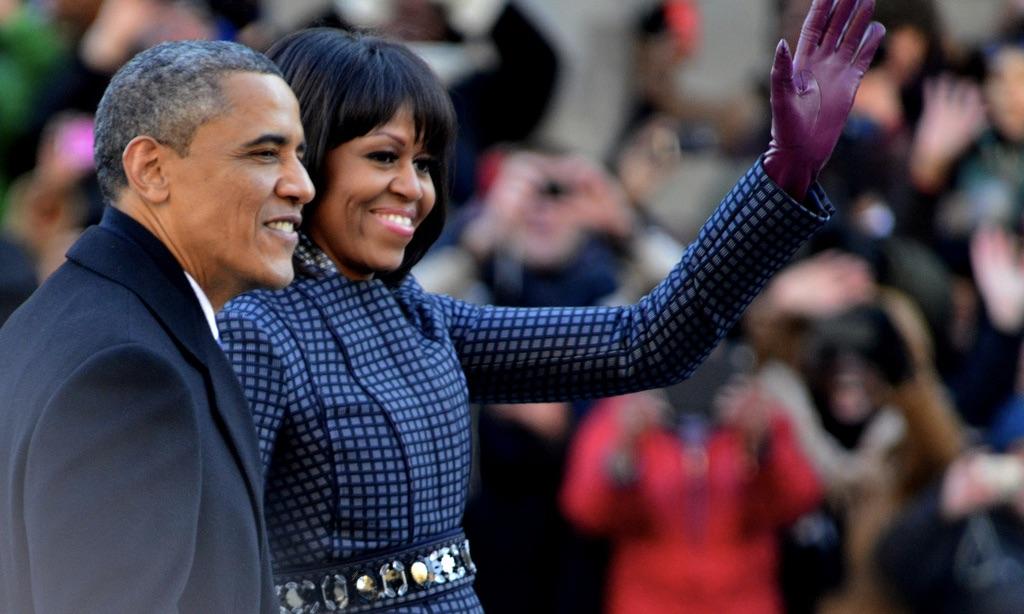Former President Barack Obama is facing backlash after a recent statement urging Black men to carefully consider their votes in the upcoming election. Social media erupted after political commentator Janiyah R. Thomas accused the former president of trying to dictate how Black men should vote, highlighting his millionaire status and current influence in media.
"President Obama scolding Black men and telling them who they should vote for as if he isn’t this multimillionaire running Netflix... then going into our communities and telling them what they should do," Thomas wrote in a viral post on X, formerly known as Twitter. She added, "Black people are not falling for the same tricks the Democrats traditionally use."
The controversy stems from Obama’s recent speech at a campaign event where he called on Black voters, particularly men, to think critically about the stakes of the 2024 election. While Obama’s comments were intended to rally support for Democratic candidates, they’ve been met with growing resistance from some members of the Black community, who feel his message is out of touch with their current struggles.
Critics like Thomas argue that Obama’s wealth and influence make him disconnected from the real challenges faced by everyday Black Americans. The former president, now a multimillionaire with lucrative deals, including his partnership with Netflix, has been seen by some as trying to use his platform to manipulate political narratives.
Social media users quickly chimed in with their own frustrations, agreeing with Thomas’s point that Black voters are tired of being told how to vote. "Obama isn’t one of us anymore. He’s forgotten where he came from," one person posted. Another user remarked, "He made it out, but he’s still acting like he knows our struggles."
The backlash raises questions about Obama’s role in influencing the Black vote, a demographic that has historically leaned Democratic but has shown signs of shifting allegiances in recent years. Many voters feel increasingly disillusioned with both major political parties, and Obama’s remarks appear to have struck a nerve, especially among younger and more independent Black voters.
However, others have defended Obama, pointing out that his call for voter engagement is nothing new. They argue that Obama remains a respected figure in many Black communities and that his guidance is meant to encourage participation rather than control decisions.
Supporters of Obama also emphasize his unique position as the first Black president of the United States and his ability to connect with diverse audiences. "He’s trying to ensure that we don’t lose our voice in these critical elections," a pro-Obama commenter wrote. "Don’t let the noise drown out the importance of showing up at the polls."
With the 2024 election drawing closer, it’s clear that Obama’s influence on Black voters remains significant, but the recent backlash shows that his sway is no longer unquestioned. The sharp divide in reactions suggests a more complicated relationship between Black voters and political figures, particularly those who have reached elite status.
As Obama continues to campaign for Democratic candidates, it remains to be seen how this controversy will impact his ability to rally Black voters—a key demographic in the upcoming election.



 U.S. Lawmakers Question Trump’s Iran Strategy After Joint U.S.-Israeli Strikes
U.S. Lawmakers Question Trump’s Iran Strategy After Joint U.S.-Israeli Strikes  Iran Supreme Leader Ayatollah Ali Khamenei Killed in Israeli, U.S. Strikes: Reuters
Iran Supreme Leader Ayatollah Ali Khamenei Killed in Israeli, U.S. Strikes: Reuters  Trump to Address Nation as U.S. Launches Strikes in Iran, Axios Reports
Trump to Address Nation as U.S. Launches Strikes in Iran, Axios Reports  Why did Iran bomb Dubai? A Middle East expert explains the regional alliances at play
Why did Iran bomb Dubai? A Middle East expert explains the regional alliances at play  Macron Urges Emergency UN Security Council Meeting as US-Israel Strikes on Iran Escalate Middle East Tensions
Macron Urges Emergency UN Security Council Meeting as US-Israel Strikes on Iran Escalate Middle East Tensions  Trump Says U.S. Attacks on Iran Will Continue, Warns of More American Casualties
Trump Says U.S. Attacks on Iran Will Continue, Warns of More American Casualties  Suspected Drone Strike Hits RAF Akrotiri Base in Cyprus, Causing Limited Damage
Suspected Drone Strike Hits RAF Akrotiri Base in Cyprus, Causing Limited Damage  Does international law still matter? The strike on the girls’ school in Iran shows why we need it
Does international law still matter? The strike on the girls’ school in Iran shows why we need it  Russia Signals Openness to U.S. Security Guarantees for Ukraine at Geneva Peace Talks
Russia Signals Openness to U.S. Security Guarantees for Ukraine at Geneva Peace Talks  Trump Warns Iran as Gulf Conflict Disrupts Oil Markets and Global Trade
Trump Warns Iran as Gulf Conflict Disrupts Oil Markets and Global Trade  EU Urges Maximum Restraint in Iran Conflict Amid Fears of Regional Escalation and Oil Supply Disruption
EU Urges Maximum Restraint in Iran Conflict Amid Fears of Regional Escalation and Oil Supply Disruption  Israel Launches Fresh Strikes on Iran After Death of Supreme Leader Ayatollah Khamenei
Israel Launches Fresh Strikes on Iran After Death of Supreme Leader Ayatollah Khamenei  UK Accepts U.S. Request to Use British Bases for Defensive Strikes on Iranian Missiles
UK Accepts U.S. Request to Use British Bases for Defensive Strikes on Iranian Missiles  Argentina Tax Reform 2026: President Javier Milei Pushes Lower Taxes and Structural Changes
Argentina Tax Reform 2026: President Javier Milei Pushes Lower Taxes and Structural Changes  HHS Adds New Members to Vaccine Advisory Panel Amid Legal and Market Uncertainty
HHS Adds New Members to Vaccine Advisory Panel Amid Legal and Market Uncertainty  Middle East Conflict Escalates After Khamenei’s Death as U.S., Israel and Iran Exchange Strikes
Middle East Conflict Escalates After Khamenei’s Death as U.S., Israel and Iran Exchange Strikes 































